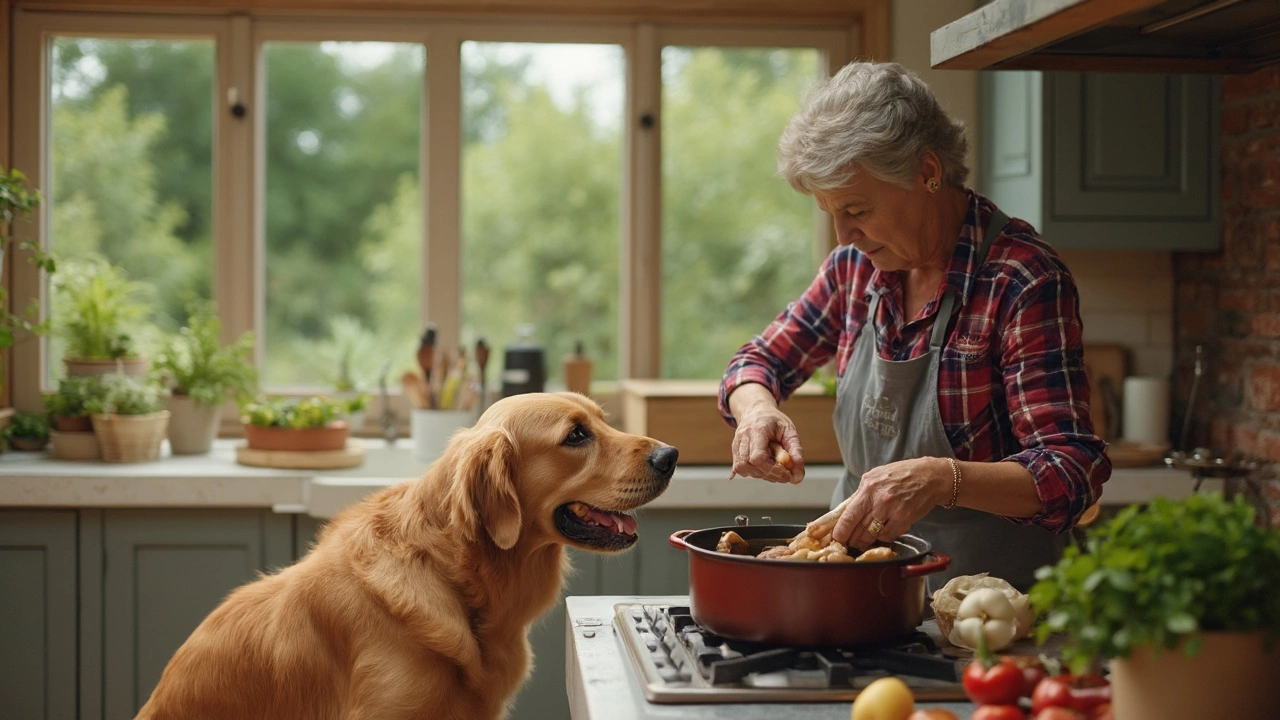Dog Gut Health – Why It Matters and How to Keep It Strong
When your dog’s stomach feels good, everything else follows – more energy, shinier coat, and calmer moods. A healthy gut isn’t just about avoiding diarrhea; it’s the center of the immune system and mood regulation. Below you’ll find easy steps you can start today to give your pup a happier digestive tract.
Common Signs of a Sensitive Gut
First, spot the red flags. Frequent loose stools, excessive gas, or a sudden change in appetite often point to gut irritation. You might also notice itchy skin or restless nights; gut inflammation can trigger skin issues and anxiety. If your dog is gaining or losing weight without a clear reason, the gut could be the culprit. Keep a short journal of meals and symptoms – it helps the vet see patterns fast.
Everyday Habits to Support Digestion
1. Upgrade the food. Choose a high‑quality kibble or fresh diet with real meat as the first ingredient. Avoid fillers like corn and wheat, which can ferment and cause gas. 2. Add a probiotic. A spoonful of a vet‑recommended probiotic powder or a chewable supplement each day packs billions of good bacteria that crowd out the bad ones. 3. Include prebiotic fibers. Pumpkin, carrots, and a little bit of cooked sweet potato feed the friendly microbes and keep transit regular.
4. Hydration matters. Fresh water should be available all day, and a splash of low‑sodium broth can encourage drinking, especially in seniors. 5. Slow down meals. A slow‑feed bowl or puzzle feeder prevents gulping, reducing bloating and improving nutrient absorption.
6. Limit treats. Human snacks like cheese, chocolate, or onions can upset the gut balance. Stick to approved dog treats or tiny pieces of boiled chicken. 7. Regular vet checks. A stool test once a year can reveal parasites or dysbiosis before it shows obvious signs.
8. Manage stress. Loud noises, new environments, or a shaky routine can trigger gut flare‑ups. A calm walk, gentle massage, or a safe crate space helps the gut stay settled.
9. Rotate proteins wisely. Some dogs develop sensitivities to a single protein source. Rotating between chicken, beef, and fish every few months can keep the gut microbiome diverse.
10. Watch for medication side effects. Antibiotics, NSAIDs, and even some heartworm pills can disrupt gut flora. Ask your vet about a probiotic “booster” when you start a new prescription.
Remember, changes should be gradual. Move to a new food over 7‑10 days, mixing increasing amounts of the new with decreasing amounts of the old. A sudden switch can cause temporary upset that looks like a chronic problem.
When you combine a balanced diet, targeted supplements, and a low‑stress environment, you give your dog’s gut the tools it needs to thrive. A happy gut means a happier, healthier companion to share every adventure with.

